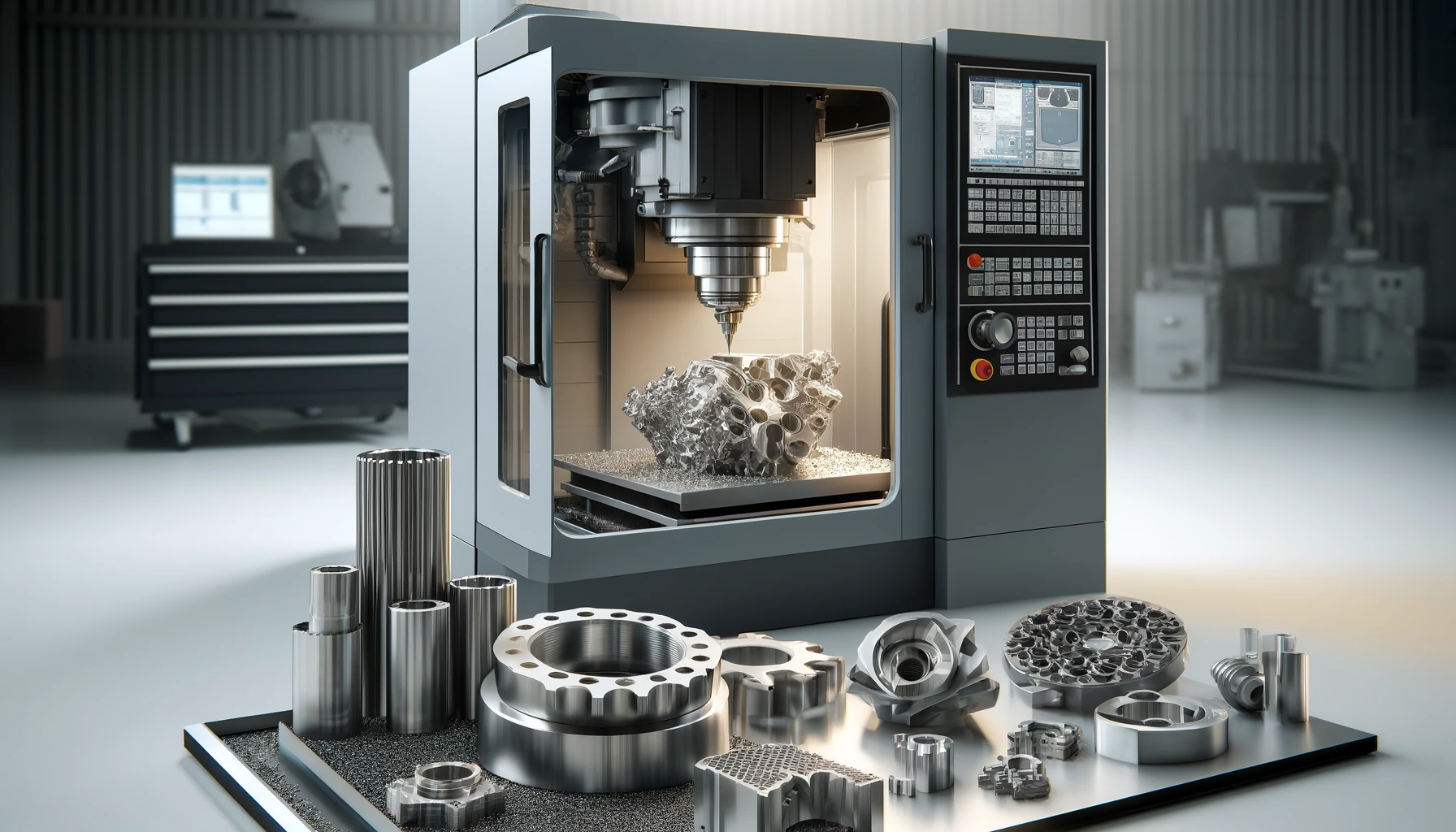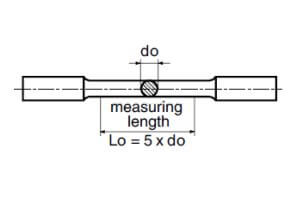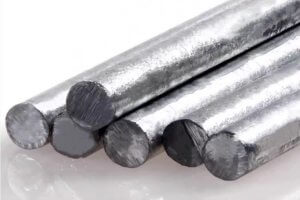What Makes Titanium a Preferred Material for Precision Parts?
Titanium is renowned for its exceptional properties, making it a preferred material for manufacturing precision parts in various industries such as aerospace, medical, and automotive.
Strength-to-Weight Ratio: Titanium offers a high strength-to-weight ratio, providing the strength of steel at a much lighter weight, which is crucial for applications where weight savings are essential.
Corrosion Resistance: Titanium’s excellent resistance to corrosion ensures long-lasting performance in harsh environments, reducing the need for frequent replacements.
Biocompatibility: In the medical field, titanium’s biocompatibility makes it ideal for implants and prosthetics, ensuring compatibility with the human body without adverse reactions.
Case Study: Aerospace Industry Applications
In the aerospace industry, the use of titanium for critical components such as turbine blades and airframe structures is driven by its high strength-to-weight ratio and corrosion resistance, leading to improved fuel efficiency and durability.
Why Is CNC Milling Ideal for Machining Titanium?
CNC milling is particularly well-suited for machining titanium due to its precision, flexibility, and ability to handle the material’s unique properties effectively.
Precision and Accuracy: CNC milling machines can achieve the high tolerances required for precision titanium parts, ensuring each component meets exact specifications.
Flexibility in Design: CNC milling allows for complex geometries and intricate designs, making it possible to produce highly detailed titanium parts that are essential in advanced applications.
Material Handling: CNC milling machines are equipped to handle the challenges posed by titanium, such as heat generation and tool wear, through advanced cooling systems and specialized tooling.
Data Table: Benefits of CNC Milling for Titanium
| Benefit | Description | Impact on Production |
|---|---|---|
| High Precision | Achieves tight tolerances | Ensures component accuracy |
| Design Flexibility | Handles complex geometries | Enables intricate part designs |
| Effective Cooling | Manages heat generation | Reduces tool wear and deformation |
| Specialized Tooling | Uses carbide and coated tools | Enhances tool life and performance |
| Consistent Quality | Maintains uniformity across parts | Increases reliability and reduces defects |
How Does CNC Milling Enhance the Efficiency of Titanium Parts Production?
Efficiency in manufacturing is critical, and CNC milling enhances the production of titanium parts through several key factors.
Automated Processes: CNC milling machines operate with high levels of automation, reducing the need for manual intervention and increasing production speeds.
Reduced Tool Changes: Advanced CNC milling techniques and tooling materials extend tool life, reducing downtime associated with tool changes.
Optimized Cutting Parameters: CNC milling allows for precise control over cutting speeds, feed rates, and depths of cut, optimizing the machining process for titanium.
Case Study: Medical Device Manufacturing
A medical device company improved production efficiency by implementing CNC milling for titanium implants. The automation and precision of CNC milling reduced production time by 30%, allowing the company to meet increasing demand while maintaining high-quality standards.
What Technological Innovations Have Improved CNC Milling for Titanium?
Technological advancements have significantly enhanced CNC milling’s capabilities, particularly for challenging materials like titanium.
High-Speed Machining (HSM): HSM techniques involve using higher spindle speeds and lower feed rates, reducing heat buildup and improving tool life.
Cryogenic Machining: Using liquid nitrogen for cooling during the machining process drastically reduces thermal effects on both the tool and the workpiece.
Adaptive Control Systems: Real-time adjustments of cutting parameters based on sensor feedback help maintain optimal conditions, reducing tool wear and improving part quality.
Case Study: Automotive Component Production
An automotive manufacturer incorporated high-speed machining and adaptive control systems to produce titanium engine components. These innovations led to a 20% reduction in machining time and a significant improvement in component quality.
Why Is Quality Control Essential in CNC Milling of Titanium Parts?
Ensuring the highest quality in titanium parts is crucial, particularly for applications in critical industries such as aerospace and medical.
In-Process Monitoring: Real-time monitoring systems detect deviations during the milling process, allowing for immediate corrections and ensuring consistent quality.
Post-Process Inspection: Comprehensive inspections, including dimensional checks and surface finish evaluations, confirm that the final products meet all specifications.
Statistical Process Control (SPC): Implementing SPC helps maintain process consistency and identify trends that could lead to quality issues.
Case Study: Quality Assurance in Aerospace Manufacturing
An aerospace company implemented in-process monitoring and SPC in their titanium parts production. This approach resulted in a 50% reduction in defects and significantly improved overall product quality.
How Does CNC Milling Compare to Other Manufacturing Methods for Titanium Parts?
Understanding how CNC milling stacks up against other manufacturing methods helps highlight its advantages.
CNC Milling vs. Additive Manufacturing: While additive manufacturing offers design flexibility, CNC milling provides superior surface finish and dimensional accuracy for titanium parts.
CNC Milling vs. EDM (Electrical Discharge Machining): EDM is effective for hard-to-machine materials, but CNC milling is faster and more cost-effective for most titanium applications.
CNC Milling vs. Traditional Machining: Traditional machining methods struggle with titanium’s hardness and abrasiveness, making CNC milling the preferred choice for precision parts.
Data Table: Comparison of Titanium Manufacturing Methods
| Method | Surface Finish | Dimensional Accuracy | Cost Efficiency | Production Speed | Flexibility |
|---|---|---|---|---|---|
| CNC Milling | High | High | Moderate | Fast | Moderate |
| Additive Manufacturing | Moderate | Moderate | High | Slow | High |
| EDM | High | High | Low | Slow | Low |
| Traditional Machining | Low | Low | Low | Moderate | Low |
By addressing these critical aspects, businesses can leverage CNC milling technology to enhance the production of titanium parts, ensuring high quality and cost-effectiveness.
Other Articles You Might Enjoy
- How Does CNC Milling Enhance the Production of Titanium Parts?
What Are the Unique Challenges of Milling Titanium? Titanium is a highly desirable material in many industries due to its exceptional strength-to-weight ratio, corrosion resistance, and biocompatibility. However, its unique…
- Titanium Parts CNC Machining: Advancements and Applications in Medical Device Manufacturing
Titanium Parts CNC Machining in Medical Device Manufacturing As a cornerstone of medical manufacturing, the combination of Titanium parts and Computer Numerical Control (CNC) machining bring immense value to this…
- Using the Right Milling Technique: Down Milling vs. Back Milling
In the world of CNC milling, experts employ a myriad of techniques to maximize the capabilities of their CNC machines. These techniques are tailored to the size, shape, features, and…
- Improve the Precision of Your CNC parts
In some industries, precision machining is more essential than in others. For example, medical devices, certain parts, and products must be reliable and always work. The doctor must direct the…
- 5 Axis CNC Machining of Titanium: Revolutionizing Aerospace Component Manufacturing?
5 Axis CNC Machining: Catalyzing Innovation in Aerospace Component Manufacturing In the realm of aerospace component manufacturing, 5 Axis CNC machining is a groundbreaking technology. Fundamentally, it refers to computer…
- Custom CNC Machining Services for Titanium Parts: Enhancing Aerospace and Medical Industries?
Custom CNC Machining in the Aerospace and Medical Sectors In response to the steady growth of both the aerospace and medical industries, increasingly sophisticated manufacturing techniques have become a necessity.…









